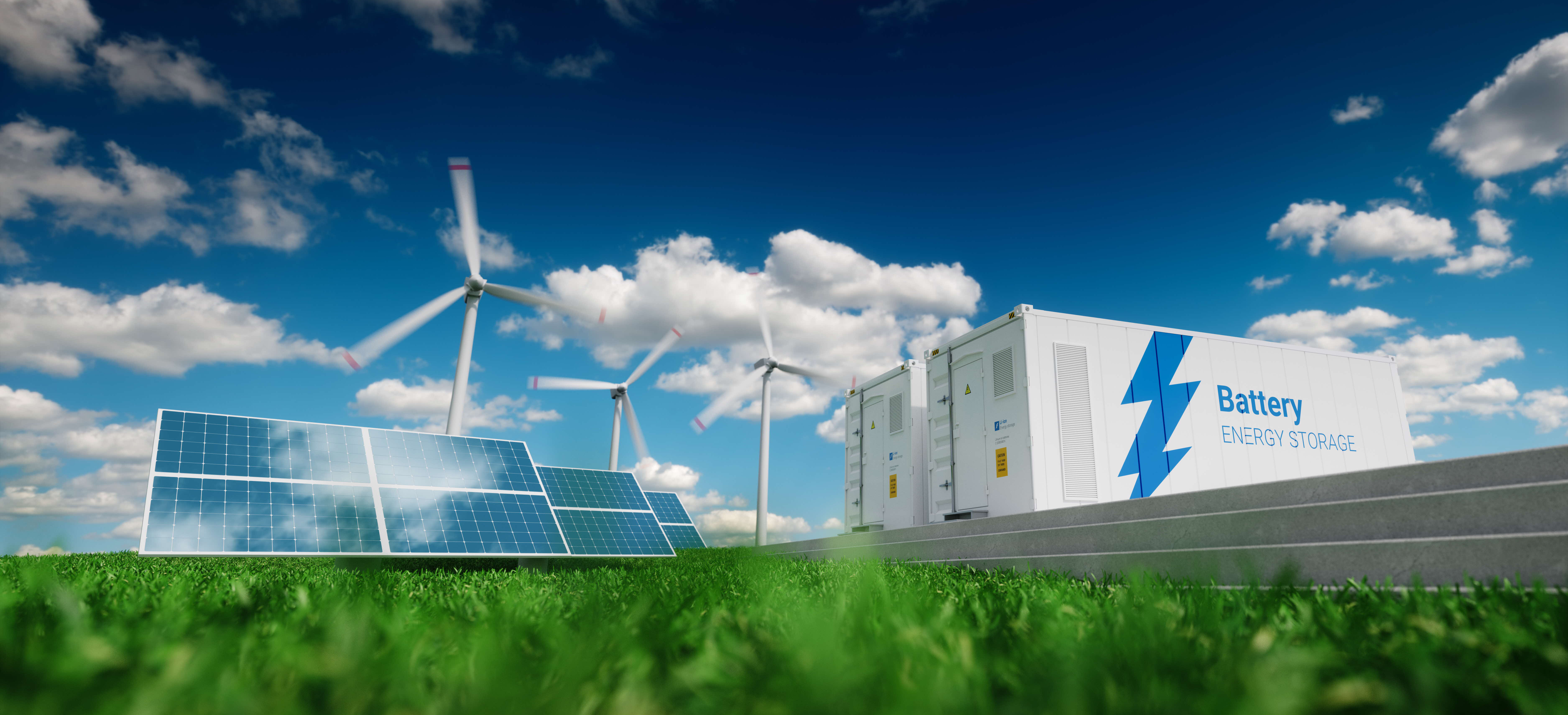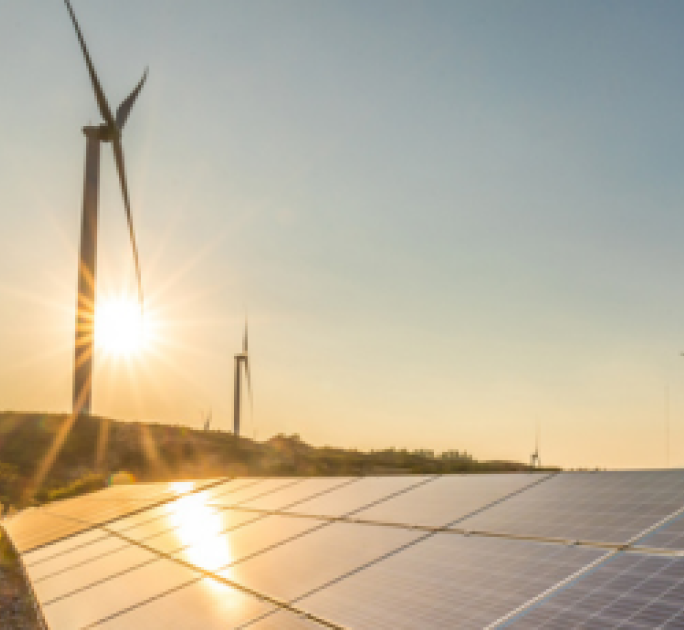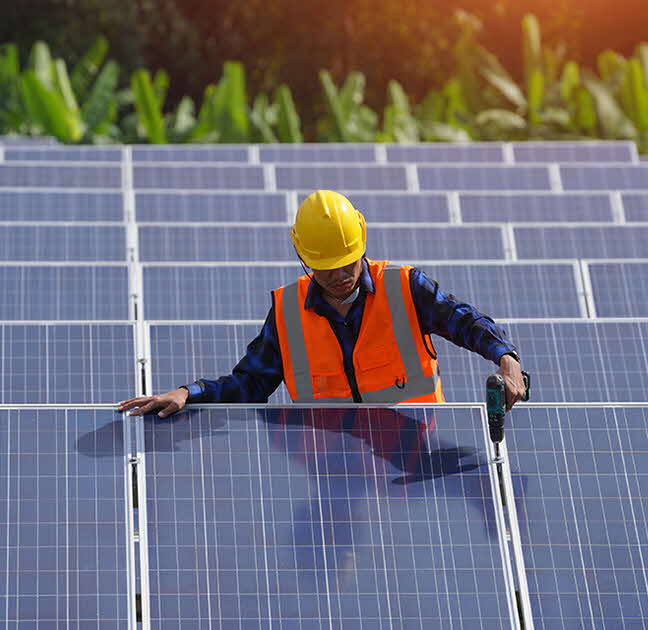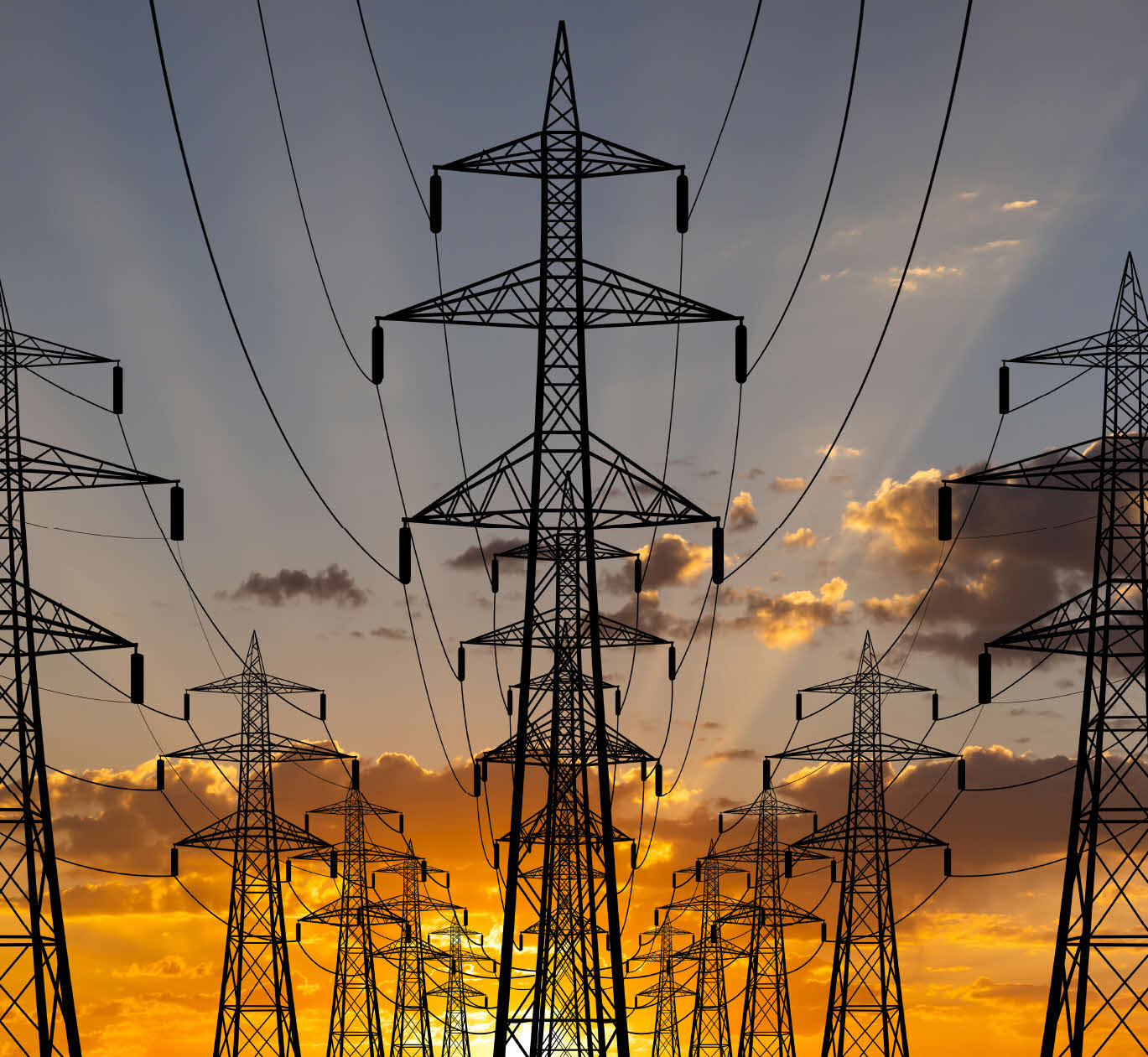Better together: Hybrid renewable energy systems, energy efficiency technology and green project financing offer a winning combination for Asia
The world is shifting from deploying standalone solar and wind power technologies to Round-the-Clock (RTC), hybrid renewable energy solutions which could supply more reliable power. As this transition gains momentum in Asia, more companies are turning to DBS’ green financing solutions in their journey to net zero.

In recent years, growth in solar, wind and battery deployment has gained momentum, as the world shifts away from thermal power to renewable energy sources.
By 2030, solar and wind could generate up to 14,000 Terawatt-hours (TWh) of electricity, up to four times higher than 2022 levels, predicts clean energy think tank RMI1. This could supply more than one-third of global electricity by 2030, up from about 12 percent today.
However, the intermittent, seasonal nature of standalone wind or solar power systems limit their ability to meet variable electricity demand. The need for stable, uninterrupted supplies of renewable energy – or “round-the-clock (RTC) power – has in turn driven up investments and technology advances in co-located hybrid systems.
These RTC systems typically combine two or more renewable energy assets; storage technologies such as Battery Energy Storage Systems (BESS) or pumped hydro systems; as well as smart grid management.
“Developers are increasingly choosing to configure their renewable generation assets as hybrid assets combining solar, wind and storage projects that extend reliable generation hours to accommodate grid capacity constraints and meet the economic imperative to enhance returns,” said Rajiv Vishwanathan, DBS Bank Executive Director of Project Finance.
Asia’s quest for reliable renewable energy
Against this backdrop, the share of co-located onshore wind, solar and energy storage is projected to increase from 14 percent in 2021 to 35 percent of global renewable projects by 2030, predicted information services provider IHS Markit.
As a frontrunner in the global clean energy transition, Asia is a key market for RTC deployment. The Asia-Pacific region has been actively growing its green energy capacity, which expanded by 12 percent in 2022, surpassing other regions2. Wind and solar energy projects, in particular, have increased from just 1 percent of Asia’s total power mix in 2011 to 14 percent in 2022, according to consultancy Wood Mackenzie3.
The risks of relying too heavily on intermittent renewable energy sources have become even more apparent in recent years amid record heat waves across Asia that caused widespread outages.
In China, which relies on renewables for more than half of its energy mix, authorities were forced to fall back on back-up coal and gas-fired plants to meet sudden spikes in electricity consumption due to record summer heat. Meanwhile, India – which is targeting to generate half of its electricity from renewables by 20304 – grappled with technical challenges of keeping power supply steady in its top solar-producing state of Rajasthan.
Strong start to RTC projects
Such challenges add urgency to Asian markets’ push to secure RTC power.
For instance, India plans to roll out three to five RTC projects a year. Its first hybrid project – three wind farms, a solar park and a BESS across three Indian states – started commercial operations in August 2023.
DBS was one of a consortium supporting this milestone project with syndicated project finance facilities while helping to address the complexities of the RTC by incorporating additional risk mitigation structures to minimise potential cost overruns and delays.
As one of the earliest Asian banks to support renewable energy deals, DBS’ first foray started in 2014 when it financed a portfolio of windfarms project in India. This was followed by two windfarm projects in Australia in 2017.
It also garnered significant expertise in financing offshore wind farms in the United Kingdom in 2016, laying a strong foundation for its regional market leadership.
In jurisdictions in Asia, where governments are working to ease regulatory hurdles that currently limit the deployment of renewables on a large scale, DBS is one of the few banks with the right structuring experience. For instance, it provided Huadian HK, a fully-owned subsidiary of Huadian Group which is one of China’s top five power developers, with funding to construct a 50MW solar farm located in Mymensingh, Bangladesh.
Other notable projects involve a 180 megawatt (MW) floating solar project in Taiwan, which is one of the world’s largest systems in the intertidal zone, as well as a 60 megawatt-peak inland floating solar photovoltaic (PV) system in Singapore in 2020 that is among the biggest of its kind globally.
Another major deal by DBS’ award-winning Project Finance team, which consistently ranks among the top five project finance advisors in the region, includes a lead arranger role for the acquisition financing of Tilt Renewables’ Australian portfolio by Powering Australian Renewables. The deal won the prestigious “Asia Pacific ESG Deal of the Year” by PFI Awards in 2021.
DBS has been recognised as the Project Finance Advisor of the Year in Asia Pacific by international publications including IJ Global in 2020 and 2022, and The Asset in 2019 and 2021 to 2023.
Robust deal flow
DBS’ robust track record in Asia’s renewable energy market over the past decade puts it well on track to reach its sustainable finance target of S$50 billion by 2024.
The bank is leveraging its expertise to help other emerging Asian markets catch up in the race to reach net zero by exploring opportunities to leapfrog directly to hybrid RTC systems.
“Some potentially large markets for renewables and hybrid or RTC power are Indonesia and Vietnam, where power generation and transmission are still controlled by the state,” said Abhinandan Shivashankarappa, DBS Bank Senior Vice President, Project Finance.
“They are still in the early stages of their transition but are starting to invest more in renewable capacity. Indonesia, for instance, is exploring the development of the solar module and battery value chain as a step towards promoting the growth of renewable and hybrid power systems. This opens significant opportunities for us as well as for our regional clients in the renewables space.”
New opportunities ahead
While the prices of generating power from standalone solar and wind installations have significantly decreased over the past decade, it is still relatively costly to install an RTC system. This is largely due to the oversizing of capacity, relatively expensive storage technologies and the lack of synchronous grid connections across multiple project sites.
In light of this, grid development projects across countries and regions are increasingly being considered as options to distribute critical renewable power across the region.
This in turn creates significant opportunities for cross-border, cross-currency project financing deals, which DBS is well-positioned to structure, given its strong regional connectivity and advisory capabilities.
“Alongside grid development, energy efficiency technologies are also garnering significant interest. Advanced metering technology enables consumers to optimise their electricity utilisation while allowing grid operators to reduce losses, predict demand and help shape energy infrastructure to become more reliable and efficient,” said Vishwanathan.
“One country actively exploring such technologies is India, which recently released tenders for advanced metering technology projects in several states. DBS is well-positioned to support such initiatives, as it is one of the few banks in the region with strong experience in advising and financing advanced metering technology portfolios, including the installation of about 1.2 million meters in Indonesia,” Vishwanathan added.
The bank will continue to actively support the region’s push to tap new opportunities in clean energy sources, RTC power, energy efficiency and advanced metering technologies” said Vishwanathan. “DBS is excited to be part of the evolutionary journey towards hybrid renewable power systems and energy efficiency, in line with our commitment to become ‘The Best Bank for a Better World’.
1 RMI, Report 2023: X-Change: Electricity, https://rmi.org/insight/x-change-electricity/
2 Reuters, Analysis: Asia heatwaves put renewable power fleet to the test, 23 June 2023, https://www.reuters.com/world/asia-pacific/asia-heatwaves-put-its-renewable-power-fleet-test-2023-06-22/#:~:text=SOLAR%2C%20PLUS%20COAL,the%20International%20Renewable%20Energy%20Agency.
3 Wood Mackenzie, Risk and reward for renewables developers in Asia’s booming power market, 22 September 2022, https://www.woodmac.com/news/opinion/risk-and-reward-for-renewables-developers-in-asias-booming-power-market/
4 The Wire, Chart: How much of India’s electricity is generated from renewable sources?, 10 November 2022, https://thewire.in/energy/chart-india-renewable-energy-generation



